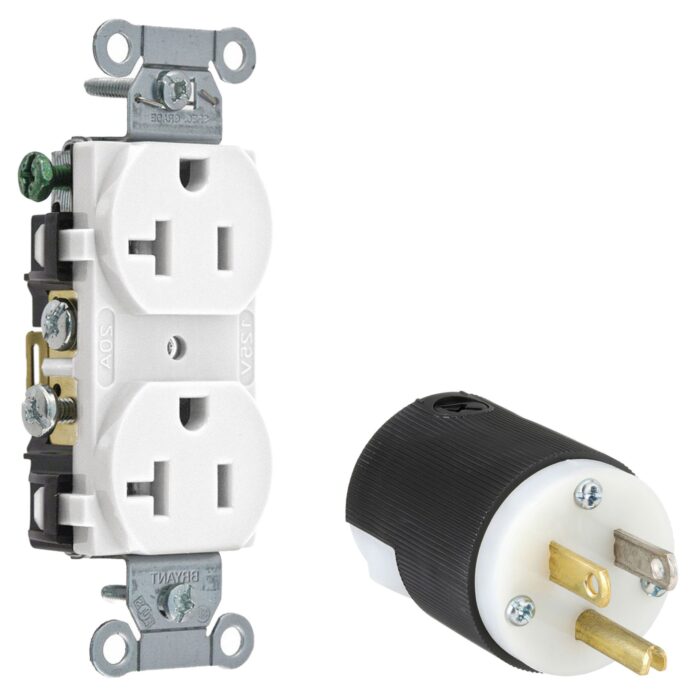Welcome to our comprehensive guide on choosing the right electrical parts supplier! Whether you’re a seasoned professional or a DIY enthusiast, finding the perfect supplier for your electrical needs is crucial. After all, quality and reliability are key when it comes to electrical components. So, buckle up and let us take you through this electrifying journey of discovering the different types of suppliers and why selecting the right one can make all the difference. From industrial circuit breakers to residential circuit breakers and electrical transformers, we’ve got you covered with valuable insights that will empower you in making informed decisions. Let’s dive in!
Types of Electrical Parts Suppliers
When it comes to electrical parts suppliers, there are various types that cater to different needs and industries. Let’s explore some of the most common ones:
- Manufacturers: These suppliers produce the electrical components themselves, ensuring quality control and customization options. They often have a wide range of products available, including industrial circuit breakers and electrical transformers.
- Distributors: These suppliers act as middlemen between manufacturers and customers. They purchase large quantities of electrical parts from manufacturers and sell them to retailers or end-users at a markup. Distributors offer convenience by providing a one-stop-shop for various brands and products.
- Retailers: These suppliers focus on selling directly to consumers or small businesses. They may have physical stores or operate online platforms where you can browse through their inventory of residential circuit breakers and other essential electrical parts.
- Wholesalers: Similar to distributors, wholesalers buy in bulk from manufacturers but primarily target business customers such as contractors or electricians who require larger quantities at discounted prices.
- Specialty Suppliers: Some suppliers specialize in specific niches within the electrical industry, such as renewable energy components or lighting fixtures.
Understanding these different types of electrical parts suppliers is crucial in finding the right fit for your specific requirements.
The Importance of Choosing the Right Electrical Parts Supplier
Choosing the right electrical parts supplier is crucial for the success and safety of any electrical project. Whether you are a professional contractor or a DIY enthusiast, having access to reliable and high-quality electrical parts is essential.
One of the main reasons why choosing the right supplier is important is because it ensures that you will have access to a wide range of products. Different projects require different types of electrical parts, such as industrial circuit breakers, residential circuit breakers, and electrical transformers. A reputable supplier will have all these products readily available, saving you time and effort in sourcing them from multiple places.
Another important factor to consider when selecting an electrical parts supplier is their level of expertise and knowledge. A knowledgeable supplier can provide valuable advice on which specific parts are best suited for your project. They can also assist with troubleshooting issues or recommending alternative solutions if needed.
Reliability is another key aspect when it comes to choosing an electrical parts supplier. You need to be confident that they will deliver your orders on time and without any hiccups. Delays in receiving necessary components can result in costly project delays or even compromise the safety of your installation.
Furthermore, working with a reputable supplier means having access to genuine branded products. Electrical components must meet strict standards for safety and performance, so purchasing from trusted suppliers guarantees that you are using reliable equipment.
Building a strong relationship with an established electrical parts provider can offer long-term benefits such as discounted pricing options or priority service for repeat customers. This not only saves money but also ensures consistent availability of supplies whenever required.
Choosing the right electrical parts supplier plays a vital role in ensuring efficiency, quality, and safety in any project involving electricity. By considering factors such as product variety, expertise, reliability, authenticity, and potential long-term benefits offered by suppliers, you can make informed decisions that ultimately contribute to successful outcomes while reducing risks associated with subpar materials or delayed deliveries.
Conclusion
Choosing the right electrical parts supplier is crucial for ensuring the success and safety of any electrical project. Whether you are in need of industrial circuit breakers, residential circuit breakers, or electrical transformers, finding a reliable and reputable supplier is essential.
In this comprehensive guide, we have discussed the different types of electrical parts suppliers available in the market. From authorized distributors to online retailers, each option has its own advantages and considerations.
It’s important to carefully evaluate your specific needs and requirements when selecting an electrical parts supplier. Consider factors such as product quality, availability, pricing, customer service, and delivery options. Take the time to research potential suppliers and read reviews from other customers to gauge their reputation.
By choosing a trustworthy supplier with a wide range of products that meet your specifications, you can ensure that you receive high-quality electrical components that will perform reliably and safely in your projects.
Remember that investing in superior-quality electrical parts not only guarantees optimal performance but also reduces the risk of malfunctions or accidents down the line. It pays off to prioritize quality over price when it comes to sourcing your electrical components.
Building long-term relationships with your chosen supplier can bring added benefits such as access to technical support services or special discounts on future purchases. Maintaining open lines of communication with your supplier fosters collaboration and ensures smoother operations throughout your projects.

